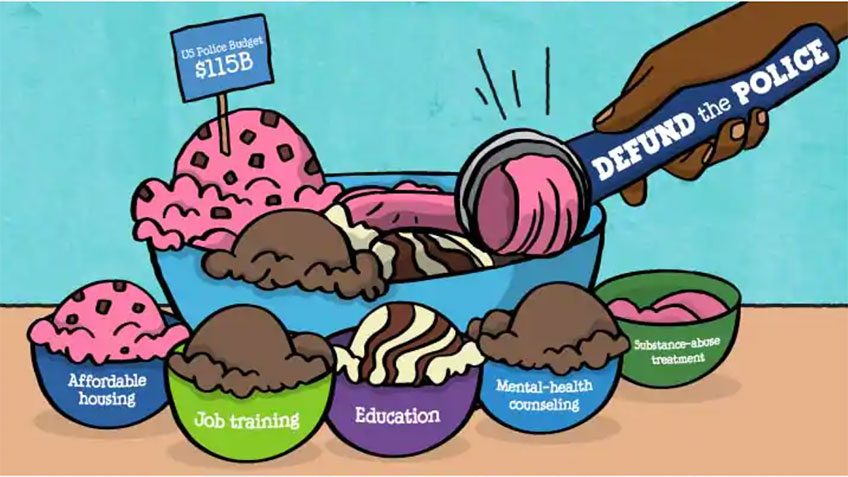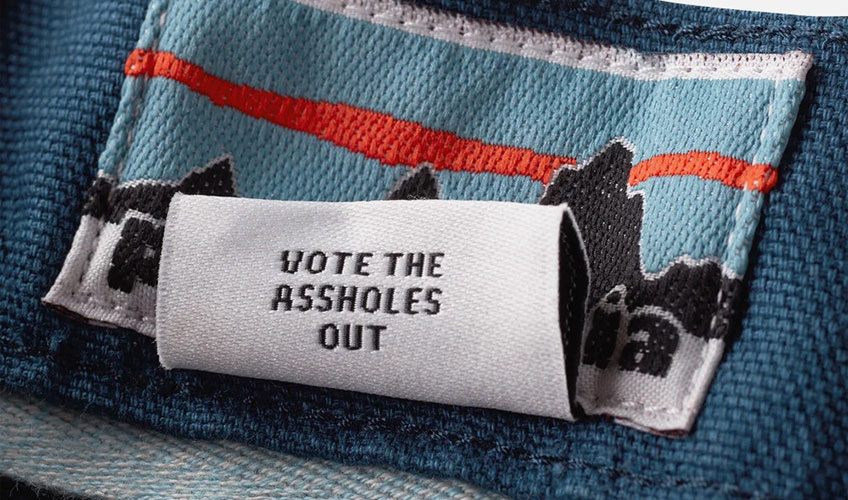2020 was a tough year for many, and although 2021 is looking a little more hopeful, the fact remains that our way of life will be very different moving forward. As a result, brands should consider how to best support their customers.
A year marked by a global pandemic, widespread social protests, and man-made environmental catastrophes, such as wildfires; brands have realized that their silence on such matters is no longer acceptable. Empty statements and commitments “to do better” and “support the community” must be backed up with actionable statements that are clear and genuine. During a time when many people are suffering, brands must use their platforms to elevate social causes because to be silent is to be complicit.
Socially Conscious Millennials and Gen Zers
Millennial and Gen Z consumers take issue with brands that remain silent during key social moments. Gen Zers and millennials care deeply about relevant social issues, such as climate change and racism, and often engage themselves in pushing for change. Gen Zers, for example, largely consider themselves to be socially conscious, and more than 50 percent of them report that knowing a brand is socially conscious influences their purchasing decision. Brands that are hoping to reach the powerful Gen Z and millennial consumer groups should ensure that their marketing strategies are based on a strong sense of values that align with their brand and their consumers.
Being Apolitical is a Risk for Brands
The interest in socially conscious brands stems from consumers’ desire for brands to be held more accountable. Usually, when social issues arise, brands participate in something known as “woke capitalism,” meaning that they respond to social issues with more representational gestures, such as making a general statement or donation. For millennial and Gen Z consumers, this simply is not enough. Brand responses need to be purposeful and show a genuine interest in making a contribution to change. Historically, brands did not feel the need to share their thoughts on racism, tragedy, or environmental disaster, as approaching such topics apolitically was seen as risk-averse. However, the rise in popularity of social media has meant that brands now have a way to communicate directly with their consumers – and, remaining silent is no longer an option.
Be Emotional with Consumers
As summarized by RetailDive, to be a social brand means more than just being socially responsible, it also means being:
- Authentic: Gen Zers value brands that are real with their representation, rather than showcasing unattainable and picturesque lifestyles. They are more likely to buy from local or small businesses as a result.
- Engaging and Innovative: Millennial and Gen Z consumers expect more of a personalized experience – they want to know that brands are invested in them. This can be done through product recommendations and being able to create online profiles.
- Community Minded: Millennials and Gen Zers are looking for a more community-minded commerce experience, referring to how commerce is becoming increasingly decentralized. Different channels have different purposes and understanding those differences can help get varied engagement.
Overall, younger consumers value brands that have a direct, emotional relationship with them. So what brands have been successful in adapting to consumers’ socially and environmentally responsible needs? Let’s analyze some best-in-class examples of how brands reacted to the major social events of 2020, and how this will continue to impact the social brand in 2021.
#BlackLivesMatter – Ben & Jerry’s
On June 23, 2020, Ben and Jerry’s released a statement that was very clear. Their message reads as follows:
“The murder of George Floyd was the result of inhumane police brutality that is perpetuated by a culture of white supremacy. What happened to George Floyd was not the result of a bad apple; it was the predictable consequence of a racist and prejudiced system and culture that has treated Black bodies as the enemy from the beginning.”

Always an advocate for various social causes, Ben and Jerry’s made it very clear to their consumers what they valued as a brand, and these values were backed up with action. As a brand, Ben and Jerry’s is committed to social good and its progressive political agenda; to do this, they use their platform to reflect what their customers value most.
At the end of 2020, Marketing Dive named Ben and Jerry’s the “Activist Brand of the Year,” an achievement that highlights how impactful a brand can be when it takes a stance early and with vigilance. The brand also continued the conversation and has been able to use their marketing graphics to help explain social situations to their consumers in bite-sized and digestible content. Their infographic that explains defunding the police not only aligns with their brand aesthetic, but also provides educational content. Ben and Jerry’s offer a scoop of justice with their ice cream!
Covid-19 – Dove
The Covid-19 pandemic was undoubtedly the most impactful event that occurred in 2020, and it is one that will continue for the foreseeable future. When the pandemic first started, the relationship between brand and consumer was deeply affected, due mostly to the state of uncertainty brought on by the pandemic. To adapt, brands had to authentically act in solidarity with their consumers.

Dove Canada responded to the pandemic by pivoting their “Real Beauty” platform to showcase the faces of frontline healthcare workers in their battle against the pandemic. The campaign aptly named “Courage is Beautiful” featured doctors and nurses with visible marks and lines on their faces from wearing personal protective equipment during long shifts over a number of days. The campaign is meant to showcase how courage is an act of beauty. During the pandemic, it became increasingly relevant that the conversation around beauty felt superficial, pushing beauty brands to adapt to the changing definition of what beauty means. In addition to the campaign, Dove Canada also donated $1 million worth of product to Canadian healthcare workers, as part of a broader support program of $3 million in donations to organizations in the GTA, Simcoe County, and Montreal. Dove rose to the occasion of social activism by supporting not only their customers but also their community during a difficult and unprecedented time. During Covid-19, Dove made it known that they support our healthcare heroes and demonstrated the influence that marketing can have during a challenging time.
Sustainability – Patagonia
Remember when wildfires raged across the world in 2020? From Australia to California, it seemed as though the world was on fire, both figuratively and literally. As brands quickly come to realize the importance of sustainability and its impact on climate change, sportswear and outerwear brand Patagonia has been focused on making high-performance products that leave the tiniest carbon footprint since its founding in 1973.

Patagonia designs apparel made from reusable and recycled materials and also finds a way to minimize the impact on the supply chain by continuing to invest in technologies that make the supply chain and its products more sustainable. As a brand, they operate under the goal of using environmental and social responsibility to make a change, while encouraging their consumers to do the same. Under the Activism tab on their website, Patagonia states that they are in the business of saving our planet, and they do so by using their voice, business and community. The brand prides itself on encouraging their consumers to think about consumption and its impact.
However, their activism is not only environmentally driven, as the brand has not shied away from taking political stances, especially regarding politicians who deny climate change. In September 2020, tags found on Patagonia’s 2020 Men’s and Women’s Road to Regenerative Organic Stand-Up Shorts read “Vote the a-holes out!” Patagonia implemented a strong message to climate change deniers in the US government, but this action was viewed as authentic and non-performative because it properly reflected Patagonia as a brand. Patagonia takes a stand on climate change and environmental justice, that is who they are.
How Can Brands Really Take a Stand?
While it’s evident that there are some great brands out there that have been able to integrate social activism into their messaging, there are also brands that have built their entire business model around a single issue. For example, Loop by TerraCycle was founded as a response to the consequences of single-use packaging on the environment. Realizing that most products and packaging were designed for single use, Loop developed a circular packaging system by offering a zero-waste partnership with participating CPG brands in which consumers return the empty packaging products to be refilled. Impact brands, such as Loop, arise out of a social purpose which build their entire framework around their ethical and moral goals to help communicate their brand purpose in an authentic way. In order to build an authentic social brand, social issues should be instilled from its foundation and upwards.
In 2021, social causes and conversations will continue to be key for brands. They will need to continue engaging on topics such as mental health, inclusivity and diversity, justice, sustainability, and so on. Younger consumers will continue looking for brands that form authentic connections and they will be looking to see how brands react to social events. Silence is no longer an option.

